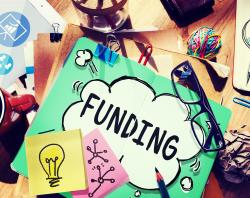In response to the call for comments issued by the UN Special Rapporteur on the rights to freedom of peaceful assembly and of association, ECNL's submission explores the key trends that affect the ability of CSOs in the Eastern Partnership (EaP) region to access diverse funding resources. Some of these include:
-
Stigmatization of critical civil society voices, including CSOs receiving foreign funding.
-
Measures for countering terrorism financing and money laundering, which restrict and burden CSOs’ legitimate work.
-
Measures to tackle the COVID-19 pandemic had both negative and positive impact on CSO funding.
-
Digitalisation is reshaping the civil society landscape.
While the two EaP countries with the most restrictive measures to access to funding are Azerbaijan and Belarus, in the past years we documented unfavourable developments in Ukraine, Armenia and Moldova, too. The challenges that specifically affect CSOs’ access to resources include:
-
Preventing CSOs to seek, receive, and use financial and material resources for the pursuit of their objectives;
-
Different treatment and restrictions of financial and material resources from foreign and international sources compared to domestic ones;
-
Measures used to fight extremism, terrorism, or money laundering are not targeted and proportionate, and are not in line with the risk-based approach, and respect human rights standards on association, assembly and expression;
-
Lack of meaningful incentives for individual and corporate philanthropy;
-
Lack of equitable tax treatment of CSOs and businesses and other measures that create additional financial burden for CSOs.
In the submission we also point out some policy and legal trends that stifle giving globally and put forward a set of recommendations on what States, UN bodies, financial institutions and the donor community could do to facilitate access to resources by CSOs. The Special Rapporteur's report will be presented at the 50th session of the Human Rights Council in 2022.

